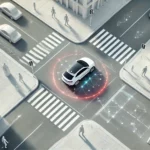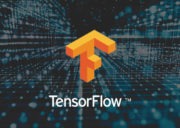Quantum computers use all of the possible pathways generated by quantum decisions to solve problems that will forever be intractable to classical computers. As the mega players vie for quantum supremacy and Rigetti announces its $1M “quantum advantage” prize, we live in exciting times. James Birnie is Principal Consultant at Codurance. At Codemotion Milan 2019, he provided a deep dive into quantum computing. It’s perhaps one of our more advanced talks, so we’re offering an overview and invite you to watch the presentation in all of its detail.
[jwp-video n=”1″]
Cryptography 101
According to James, in cryptography, everything we talk about when we describe stuff is to do with Alice and Bob. Alice is always trying to send a message to Bob and Eve is the evil eavesdropper. Now, the key point about cryptography and eavesdropping is that in order for her to usefully steal the message, she has to do it in such a way that the other two don’t know.
So you need to be able to successfully eavesdrop, not only do you need to read the message, but you need to do it in a way that they don’t know, you read the message.
How does cryptography work?
You have to find some kind of operation that’s easy to do in one direction, and hard to do in the other direction:
- Multiply two large primes
- Discrete logarithms
- Elliptic curve factorisation
Factorising numbers is sub-exponential complexity on a classical computer
Quantum computing 101
Classical computers are what we know as non-quantum computers. James explains, “They essentially store zeros and ones in various different ways. That’s called a bit. And they push those zeros and ones through what we call logic gates. And the zeros and ones might turn into different numbers, different versions of zeros and ones or they might stay the same.
And then you put a load of those logic gates together, you’ve got and gates or gates, or gates, NAND gates, and so on. That is all a digital classical computer does.
By comparison, in quantum computing we refer to @ubits:
- Any quantum system can be used as a Qubit
- When measured there are two possible outcomes
- Qubits can hold both the value zero and one at the same time simultaneously – superposition. “What that means in practicality sense is that when you do computation on a quantum register of qubits, it will simultaneously compute every possible combination of all the values of all the qubits. That’s where the power comes from.”
- Observing the value collapses the quantum state
Gate based quantum computing
- Quantum logic gates are similar to classical computing gates
- Transform quantum states into different quantum states
- Can act on one or more qubits
What do we use quantum computers for?
Up until now, applications for quantum computing have been mostly experimental but that’s going to change soon “because Google recently announced quantum supremacy. Google is claiming that they have found a real-world problem, which is more efficiently solved on a quantum computer than on a classical computer.
Location modelling
James explains, “D wave systems are using something called quantum annealing. And they are using it to try and optimise the traffic flow in Beijing. And that’s what this diagrams representing that those are traffic heat maps. – modelling complex dynamical systems”
Financial applications
There are lots of financial applications already written for predicting outcomes of financial markets because essentially a financial market is a massive multivariate system. To predict what’s going to happen in the future, you you do similar analysis on that, that you would do on like traffic flow or, or other optimization type problems. And classical computers don’t have the power to do that very effectively at the moment. So money is being spent by banks.
Quantum chemistry and the ground state:
Acording to James, “If you take a molecule, what determines the chemical properties of the molecule is not just the atoms that it contains, but exactly how close those atoms are to their neighbours and the angles of all the bonds between those atoms. And that’s a very complex problem to understand itself because when you squash together and arrangement of atoms, they try to find what they call the ground state.
Bean plants use that iron molybdenum to fertilize and they do it with no energy uptake. Which is really interesting, because we don’t know how it works. But if we understood the structure of the iron Illidan a molecule, we would know how it works.”
It takes between 3% and 5% of the entire world’s production of natural gas to make ammonia, for fertiliser for the world’s crops to feed everybody in the world. Potentially when we have quantum computers that are powerful enough and useful enough, we might start to solve problems like this.
A brief history of encryption transformed
The traditional history of encryption turned on its head:
- 1976: Diffie and Hellman published a paper which was the first known expression of public key exchange.
- 1977: Rivest, Shamir Edelman published RSA. They later found at the RSA company and patented their work
However, as James explains, “In 1997 it emerges that scientists working at GCHQ: James Ellis, Clifford Cocks and Malcolm Willamsom had created public key cryptography including an algorithm almost identical to RSA ‘several years earlier.
The trio worked for GCHQ, which is the British government cypher organisation. This was always classified information and was only made public in 1997 which it was declassified.
James contends, Much of the spending that is currently being done on quantum computers is being done by large governments. It’s being done by the American government, by the Chinese government, by the Russian government. They will not tell us when they have broken our RSA cyphers.
And even more important, any message that you send will send now using RSA is being captured and stored. Because if you have the key encrypted in it, so you can decode that key later. So, if you care about your messages being secured, not just now today, but 10 years from now, we should be using something that is post-quantum safe. And we should be doing that now.”
Other Codemotion resources on Quantum computing
IBM Think Digital 2020: Quantum Computing is a Game Changer for Enterprise: At the recent IBM Think Digital 2020, Dr. Dario Gil, Director of IBM Research spoke about the acceleration of quantum computing to solve complex challenges.
Is Cloud Computing the Superhero of Covid-19?: The COVID-19 High-Performance Computing Consortium has been organised by OSTP and IBM and brings together Federal government, federal agency partners (NASA and the National Science Foundation) and five Department of Energy labs, industry, and academic leaders to provide access to the world’s most powerful high-performance computing resources in support of COVID-19 research.




